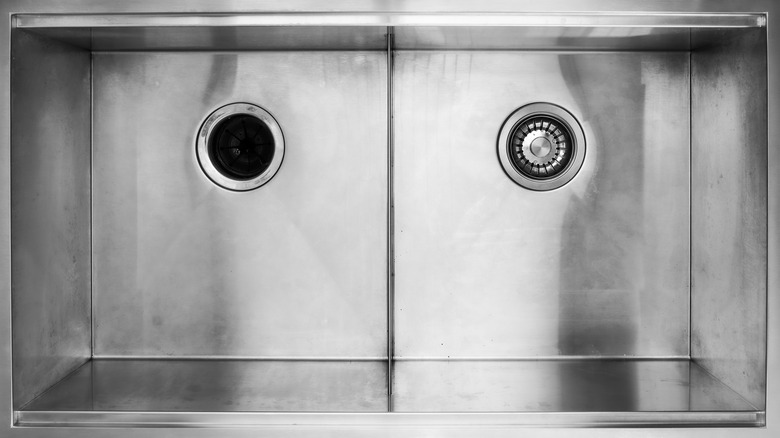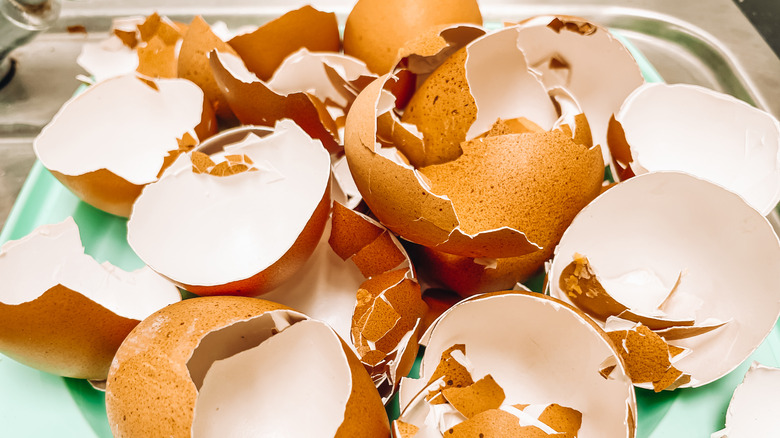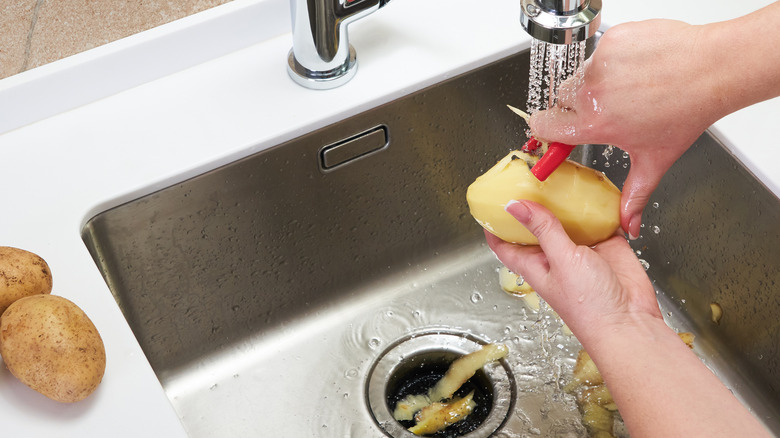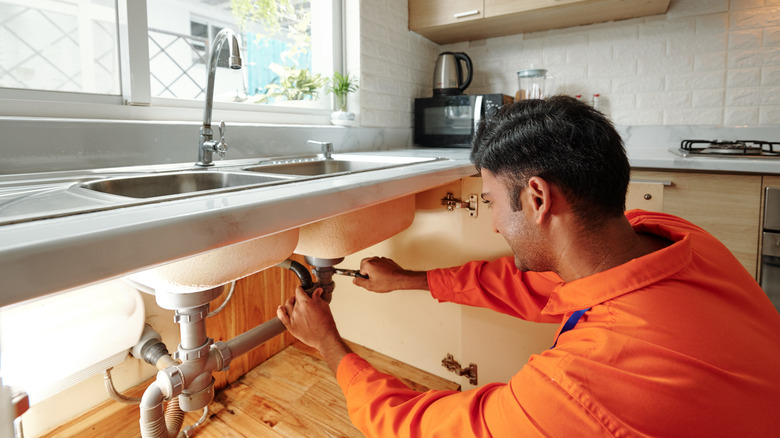You Shouldn't Put These Foods Down Your Garbage Disposal. Here's Why
Garbage disposals are a lifesaver. They make cleaning up your kitchen much easier and less stressful. Plus, you don't have to make quite as many trips to the waste bin after cooking. However, if you're the kind of person who throws everything down the garbage disposal, you could be setting yourself up for serious problems. Let's get one thing straight: Although there's "garbage" in the name, garbage disposals aren't meant to be treated like your trash can.
Yes, this kitchen appliance's powerful blades can quickly grind food waste into tiny particles to be washed down the drain, but it doesn't work so well with some types of scraps. Some items could damage the garbage disposal blades or, worse still, cause serious plumbing issues. Additionally, all the rotten food stuck along the pipes can really stink up your kitchen, causing you to depend on hacks like lime juice to kill the garbage disposal odor.
So, how do you know what your garbage disposal can handle? James Burroughs, a virtual plumbing expert at Frontdoor, a service that connects homeowners with skilled tradespeople, shared valuable advice with Daily Meal about things you should never put in your garbage disposal — specifically non-food items that you may generate during your cooking or meal prep.
No eggshells and coffee grounds down the drain
Eggshells don't look like they could do much harm to your garbage disposal. In fact, you might have heard that they can sharpen the garbage disposal blades. Unfortunately, there's no truth to this, and throwing eggshells down your kitchen drain will only cause you problems. Now, with eggshells, the problem might not become apparent immediately. For some, it only shows up after a long period of getting away with it or after disposing of many eggshells all at once.
As James Burroughs explains, the trouble with eggshells is that they "do not grind down completely." Those little shell pieces eventually "build up in the drain line," blocking it off. But it's not just the shells themselves that can be problematic. Their thin inner membrane lining can also wrap around the garbage disposal blades, causing more issues over time.
Coffee grounds are another thing you should keep out of your garbage disposal. While they're no match for the strong garbage disposal blades, they can cause problems with your pipes. Ever notice how ground coffee clumps together when you're brewing coffee at home? Well, that's exactly what happens when you try to flush them down the garbage disposal. Therefore, Burroughs warns that since "coffee grounds tend to clump up and eventually cause clogs" along your pipes, you should never throw them into your garbage disposal.
Other types of food waste to never put in the garbage disposal
A simple rule to remember what can go inside your garbage disposal is that if you won't eat it, your garbage disposal probably shouldn't either. As James Burroughs explains, you should "only put food in the garbage disposal." Anything else that includes "items like peels or shells because these items do not grind down completely and deposits of them will develop into a blockage."
Potato peels, for instance, should never go into your garbage disposals as they contain a lot of starch. Therefore, they can get stuck along the pipes, absorb water, and expand, eventually getting big enough to cut off the flow entirely. Stringy or fibrous foods like celery, banana peels, onion skins, and corn husks can also cause issues, as they get caught on the garbage disposal blades. Plus, since they don't decompose quickly, they sit in your pipes, catching other bits and building a blockage.
And don't forget about cooking grease. Pouring it down your kitchen drains is a recipe for disaster as it can solidify along the pipes and cut off the flow. A better way to handle this type of waste is to pour the used grease into a bowl to solidify and toss that in the trash. Alternatively, you can soak up the excess oil with absorbent material like paper towels.
More tips to protect your garbage disposal
James Burroughs emphasizes that knowing what food items can safely be discarded in your garbage disposal is crucial if you want to "prolong the functionality of your kitchen drains." But there's so much more you could do to avoid plumbing issues in the future.
For instance, non-food items can easily get caught in the garbage disposal if you don't clear the drain out before turning it on. Items like spoons or other utensils jammed inside the garbage disposal "may cause significant damage to the internal blades of the disposal." That's why Burroughs advises you: "Always be sure to check the disposal opening for silverware or other obstructions " before turning it on.
It doesn't end there. After each cycle, you've got to be sure that your garbage disposal is still working correctly. He suggests sparing a few minutes to "check under the sink for leaks or other issues resulting from the unit vibrating with each use, which can lead to fittings loosening over time." This way, you can catch problems early before they cause permanent damage.



